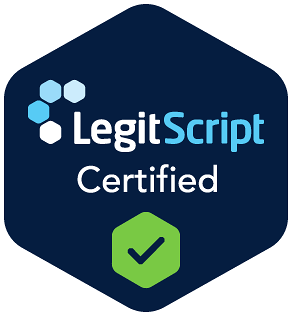Colorado continues to see increasing numbers of addiction rates and overdose deaths year after year. Between April 2020 and April 2021, over 100,000 men and women died from a drug overdose in the U.S. Aetna drug and alcohol rehab can help Colorado residents struggling with addiction who want to regain control of their lives. Depending on your plan, Aetna rehab insurance can cover 70–85% of your drug and alcohol rehab.
At Colorado Medication Assisted Recovery, we work with Aetna and other major insurance companies to provide you with safe and compassionate drug and alcohol rehab. Our support staff will gather your information and process your insurance paperwork on your behalf. Our seamless verification process will show you a summary of your individual coverage and any out-of-pocket costs for which you will be responsible. Many of our patients are able to get the care they need with zero out-of-pocket costs. To learn more about our Aetna drug and alcohol rehab, call 833.448.0127 today to speak with our knowledgeable staff.
Drug and Alcohol Rehab Programs Covered by Aetna
With varying deductibles, co-pays, and maximums, Aetna and other insurance providers cover many substance use disorder and mental health treatment programs. You will know exactly what your insurance will pay at the start of your treatment and any out-of-pocket costs you are responsible for.
The types of programs your Aetna insurance coverage will cover include:
- Detox – Detoxing includes medication-assisted treatment to reduce withdrawal symptoms and allow patients to get through withdrawals with less risk of relapsing safely. Patients will continue to receive medication to benefit their recovery throughout their treatment program.
- Partial hospitalization program – This program is a step down from a residential program or can be a starting point for patients whose withdrawal symptoms are not so severe. They spend six to eight hours a day at a treatment center participating in behavioral and other types of therapy. Patients then return to their homes or sober living environment each night.
- Intensive outpatient program – Patients begin spending more time at home and continue therapy for as much time as necessary to maintain their sobriety. Patients will typically spend four to eight hours a week to continue their recovery for as long as necessary.
At Colorado Medication Assisted Recovery, our Aetna drug and alcohol rehab programs are essential for patients ready for a real change in their lives. We work with your Aetna rehab coverage and can help you find other ways to pay for your portion of care. Colorado offers many grants and state assistance programs to cover some of the rehab costs.
Understanding Your Aetna Insurance Coverage
Aetna insurance coverage offers several types of plans to help you cover the cost of your addiction treatment. These plans are supported by the National Network of Providers and include:
- Open access plans – This plan lets you choose your own doctor and does not require a primary care physician. Plus, you do not need to get a referral to see a specialist.
- Copay-only plans – With this plan, you will only be responsible for your co-pays once your deductible is met.
- High-deductible plans – These plans will have a higher deductible that you are responsible for but comes with lower monthly payments. You also get a health savings account where money can be automatically deposited, and you are not taxed on the money you put into your HSA.
Colorado Medication Assisted Recovery: Your Best Choice for Compassionate Aetna Drug and Alcohol Rehab
Colorado Medication Assisted Recovery provides safe and private Aetna drug and alcohol rehab that gives patients a real chance at turning their lives around. Our addiction treatment programs can help with addiction to many different substances, including:
- Alcohol
- Opioids and opiates
- Prescription drugs
- Heroin
- Oxycontin
- Percocet
If you or a loved one is struggling with addiction, call 833.448.0127 today to speak with our compassionate staff about our Aetna drug and alcohol rehab programs.





